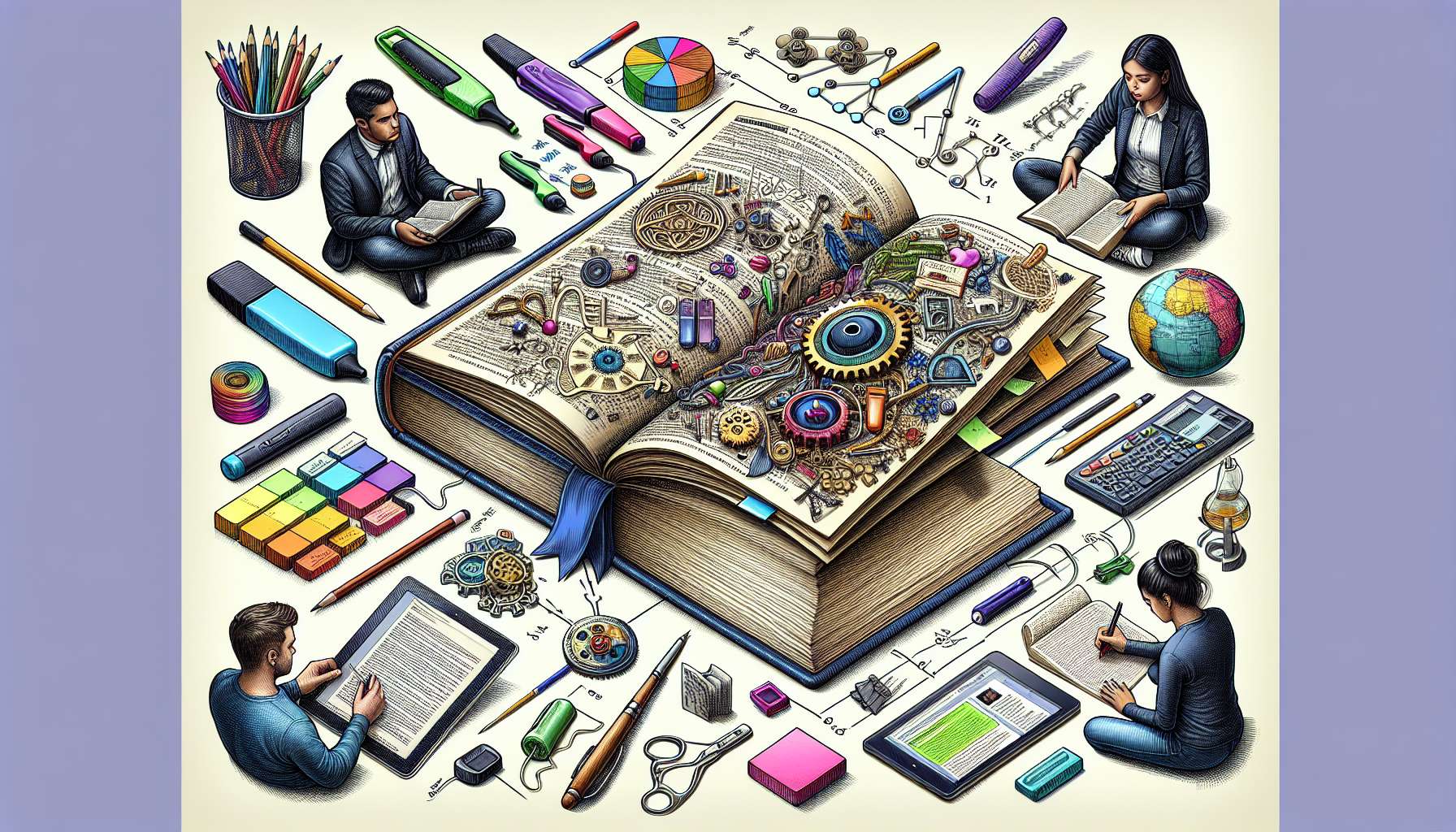Unlocking the Secrets of Essential Study Skills
Studying is an integral part of academic success, yet many students struggle to find effective study strategies that work for them. From time management to note-taking techniques, essential study skills play a crucial role in enhancing learning outcomes. In this comprehensive guide, we will delve into the world of essential study skills, exploring various strategies, tips, and tricks to help you excel in your academic pursuits. So, grab your pens and notebooks as we embark on this journey to unlock the secrets of effective studying.
The Power of Time Management
Time management is a cornerstone of effective studying. Without proper time management skills, even the brightest students can struggle to keep up with their coursework. One of the key aspects of time management is creating a study schedule that works for you. Whether you prefer to study in short bursts or longer sessions, finding a routine that fits your lifestyle is essential.
Another important aspect of time management is prioritizing tasks. By identifying the most important and urgent assignments, you can focus your energy on completing them first. This not only helps you stay organized but also ensures that you meet deadlines and avoid last-minute cramming sessions.
One popular technique for managing time effectively is the Pomodoro Technique. This method involves studying for 25 minutes, followed by a 5-minute break. After four study sessions, you take a longer break. This technique helps maintain focus and prevents burnout during long study sessions.

The Art of Note-Taking
Effective note-taking is another essential study skill that can significantly impact your academic performance. Taking good notes during lectures or while reading can help you retain information better and make studying more efficient.
There are various note-taking methods, such as the Cornell method, outlining method, and mind mapping. Each method has its strengths and weaknesses, so it’s essential to find the one that works best for you. Experiment with different techniques until you find one that suits your learning style.
When taking notes, focus on key points, definitions, and examples. Use abbreviations and symbols to save time and space. Organize your notes in a way that makes sense to you, whether it’s by topic, date, or chapter.
Reviewing your notes regularly is also crucial for retention. By revisiting your notes shortly after taking them and periodically throughout the semester, you reinforce your memory and ensure that the information stays fresh in your mind.

The Importance of Active Learning
Active learning is a dynamic approach to studying that engages students in the learning process. Instead of passively reading or listening to lectures, active learning involves activities such as group discussions, problem-solving, and hands-on experiments.
One of the benefits of active learning is that it enhances understanding and retention of information. By actively engaging with the material, students are more likely to remember key concepts and apply them in real-world situations.
Active learning also promotes critical thinking and problem-solving skills. By grappling with complex problems and collaborating with peers, students develop analytical skills that are essential for success in higher education and beyond.
Some examples of active learning strategies include peer teaching, case studies, role-playing, and simulations. These methods not only make learning more fun and engaging but also provide valuable opportunities for application and reflection.

The Role of Self-Regulation
Self-regulation is the ability to monitor, evaluate, and regulate one’s own learning behaviors. This essential study skill involves setting goals, managing distractions, and reflecting on your progress.
One of the key components of self-regulation is metacognition, or thinking about one’s own thinking. By reflecting on how you learn best, setting realistic goals, and monitoring your progress, you can improve your study habits and achieve better results.
Self-regulation also involves managing your time effectively, setting priorities, and overcoming procrastination. By breaking tasks into smaller, manageable chunks and setting deadlines for each step, you can stay on track and avoid last-minute panic.
Developing self-regulation skills takes time and practice, but the payoff is well worth it. Students who can regulate their learning behaviors are more likely to succeed academically and develop lifelong skills that will serve them in their future careers.

The Impact of Technology on Study Skills
Technology has revolutionized the way we study, providing students with access to a wealth of information and resources at their fingertips. From online research tools to educational apps, technology has the power to enhance learning outcomes and streamline study processes.
One of the key benefits of technology in studying is the ability to collaborate with peers remotely. Online study groups, video conferencing, and shared documents make it easier than ever to work together on group projects and assignments.
Digital tools such as flashcard apps, note-taking software, and plagiarism checkers can also help students study more efficiently and effectively. These tools automate repetitive tasks, provide instant feedback, and save time that can be better spent on understanding and applying the material.
However, it’s essential to use technology mindfully and avoid distractions. Social media, notifications, and other digital temptations can derail your study sessions and hinder your productivity. Setting boundaries, using productivity apps, and taking regular breaks can help you stay focused and make the most of technology in your studies.

Expert Opinions on Essential Study Skills
We reached out to several experts in the field of education to get their insights on essential study skills. Dr. Sarah Johnson, a professor of psychology at a leading university, emphasized the importance of active learning in promoting student engagement and retention.
“Active learning is a game-changer for students,” Dr. Johnson said. “By incorporating hands-on activities, group discussions, and real-world examples into their study routines, students can deepen their understanding of the material and make connections that stick.”
Dr. Mark Lee, a learning specialist with over 20 years of experience, highlighted the role of technology in modern studying practices. “Technology has opened up a world of possibilities for students,” Dr. Lee said. “From online research to interactive learning platforms, technology can enhance students’ study skills and make learning more accessible and engaging.”
Common Misconceptions About Essential Study Skills
There are several common misconceptions about essential study skills that can hinder students’ academic performance. One of the most prevalent myths is that cramming is an effective study strategy. In reality, cramming only leads to short-term memorization and does not promote long-term retention of information.
Another misconception is that studying for long hours without breaks is productive. Research has shown that taking regular breaks during study sessions can improve focus and retention. Short, frequent study sessions are more effective than marathon study sessions that lead to burnout.
Conclusion
To wrap things up, essential study skills are the foundation of academic success. From time management to active learning, self-regulation, and the use of technology, mastering these skills can make a significant difference in your learning outcomes. By developing effective study habits, seeking help from experts, and dispelling common misconceptions, you can enhance your study skills and excel in your academic pursuits.
So, as you embark on your study journey, remember to prioritize time management, hone your note-taking skills, engage in active learning, practice self-regulation, and harness the power of technology. By incorporating these essential study skills into your routine, you can unlock your full potential and achieve your academic goals.




